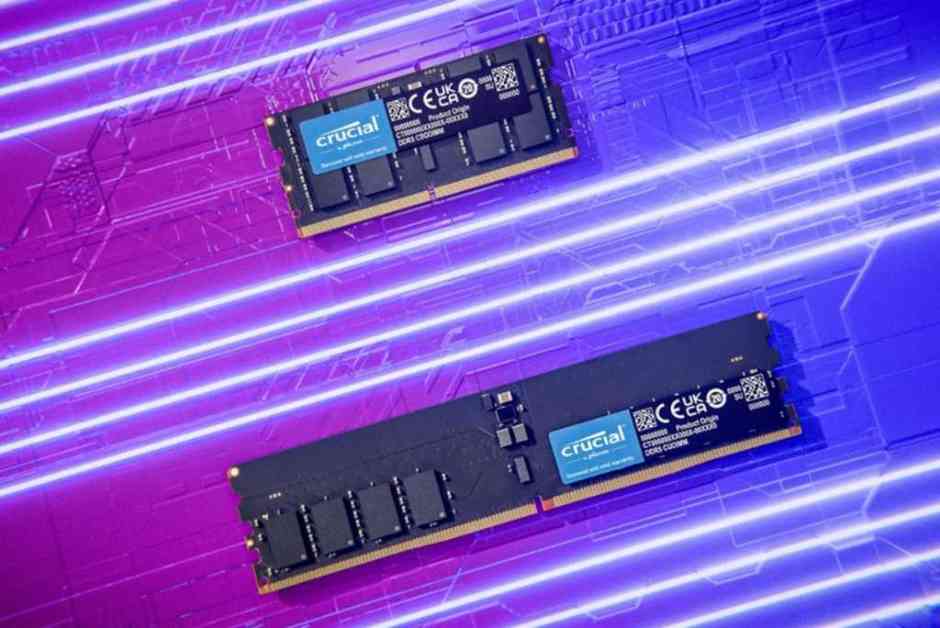Micron’s Crucial division has introduced a new innovation in PC memory modules – CUDIMMs for laptops and CSODIMMs for desktops. These new modules are designed to allow PC memory speeds to scale even higher, especially with the upcoming Intel Arrow Lake chip.
The key feature of these new modules is the inclusion of a clock driver circuit directly on the module itself, unlike traditional DIMMs that use the CPU clock. This allows for faster memory speeds, with the new modules capable of reaching 6,400 megatransfers per second, 15 percent faster than a traditional DDR5 DIMM. The precise timings enabled by the clock driver on the module itself are essential for processing higher speeds efficiently.
While Micron is positioning these modules as solutions for AI applications, they are suitable for general-purpose PC memory and will likely be used by gamers and other users seeking high-speed performance. Intel has already validated the new modules for use with its Arrow Lake chips, with shipments to PC customers already underway. These modules will come in 32Gbit modules of up to 64GB for Arrow Lake desktops, providing a total capacity of up to 256GB.
It’s important to note that these new CUDIMMs are distinct from CAMM2 memory, another recently introduced PC memory module designed for laptops. The CAMM modules are specifically designed to help users upgrade their laptop memory while maintaining a compact module design.
In terms of availability, Micron plans to begin selling the new modules online to end users in the first half of 2025. While pricing details have not been disclosed, the modules will come with a limited lifetime warranty for added peace of mind.
Overall, the introduction of CUDIMMs and CSODIMMs represents a significant step forward in PC memory technology, enabling faster speeds and more precise timings for a wide range of applications. With Intel’s Arrow Lake chips on the horizon, these new modules are set to play a crucial role in powering next-generation PC performance.
Mark, a seasoned technology journalist with decades of experience, has covered a wide range of tech topics for various publications. His expertise in PC microprocessors, peripherals, and operating systems makes him a trusted source for tech news and analysis. Mark’s extensive portfolio of articles showcases his dedication to delivering informative and engaging content to readers.











